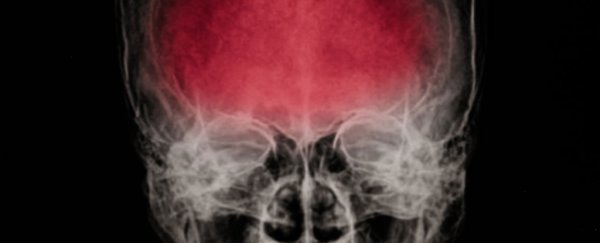There's no shortage of research identifying the possible root causes of schizophrenia, but a new study published this week is the first to demonstrate that the brains of people with schizophrenia – or at risk of developing it – have significantly higher levels of immune cell activity than those with no sign of the disorder.
Not only does the finding point to new avenues of research so we can better understand how immune cells contribute to schizophrenia, it might one day lead to treatments that could prevent the progression of the disease altogether, based on early warning signs related to inflammation in the brain.
"Schizophrenia is a potentially devastating disorder and we desperately need new treatments to help sufferers, and ultimately to prevent it," said Oliver Howes, head of the psychiatric imaging group at the Medical Research Council (MRC) Clinical Sciences Centre in the UK. "This is a promising study as it suggests that inflammation may lead to schizophrenia and other psychotic disorders. We now aim to test whether anti-inflammatory treatments can target these. This could lead to new treatments or even prevention of the disorders altogether."
Immune cells in the brain, called microglia, serve to repair damage to the brain and defend against infections, but the researchers hypothesised that one consequence of their activity could be triggering the progression of schizophrenia. To test this idea, they used positron emission tomography (PET) scans to compare the levels of microglial activity in a group of participants.
Among those tested, some were patients already diagnosed with schizophrenia, some were at risk of developing the disease, and others showed no symptoms. The researchers found that the activity levels of microglia in the brain corresponded to the severity of schizophrenia symptoms in those diagnosed with the disorder.
"Our findings are particularly exciting because it was previously unknown whether these cells become active before or after onset of the disease," said one of the team, Peter Bloomfield. "Now we have shown this early involvement, mechanisms of the disease and new medications can hopefully be uncovered."
It's early days yet. While the results are definitely promising, the sample size used in this particular study (just 56 participants) is small. But the findings also amount to the latest evidence that inflammation – in the form of potential over-activity of our immune response system – lies at the heart of a host of modern medical problems.
"This study adds to a growing body of research that inflammation in the brain could be one of the factors contributing to a range of disorders – including Alzheimer's, schizophrenia and depression," said Hugh Perry, chair of the Neuroscience and Mental Health Board at the MRC, "and with this new knowledge comes the hope of life-changing treatments."
The findings are published in The American Journal of Psychiatry.
